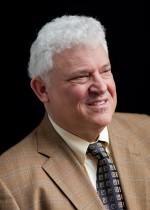Debating the Ethics of Experimental Drugs
Bioethicist Arthur Caplan to deliver this year’s SPH Shine Lecture

In March 2014, seven-year-old Josh Hardy lay critically ill in St. Jude Children’s Research Hospital in Memphis, Tenn., with a life-threatening adenovirus infection. His weakened immune system was unable to control the infection, a complication from a bone marrow stem cell transplant that the young cancer patient had received.
After efforts to treat the infection failed, his parents took to social media to lobby a small biopharmaceutical company to supply Josh with an unapproved virus-fighting drug still in clinical development, under what is known as a “compassionate use” exception. The company resisted, but eventually caved under pressure from a Twitter “#SaveJosh” campaign that gained national media attention. The boy received the drug and was discharged home.
Happy ending?
Yes, for Josh—but not so much for the rest of the world, according to bioethics expert Arthur Caplan, who will deliver the annual School of Public Health Cathy Shine Lecture tomorrow on the Medical Campus. The lecture, sponsored by the SPH health law, bioethics, and human rights department, is endowed by the family of the late Cathy Shine in recognition of the work of George Annas, a William Fairfield Warren Distinguished Professor and health law, bioethics, and human rights department chair. Shine, a strong advocate for human rights, died in 1992 from a severe asthma attack. Annas wrote about Shine’s experience and the importance of respecting patients’ rights in a much-cited article in the New England Journal of Medicine.
Caplan, the Drs. William F. and Virginia Connolly Mitty Professor of Bioethics at the New York University School of Medicine and founding director of the Division of Medical Ethics at the NYU Langone Medical Center Department of Population Health, will present a talk titled The Right to Try: Compassionate Use of Experimental Medicine.
“Social media is a wild card in compassionate use,” Caplan says, speaking of the Josh Hardy case and others like it. “When you have an adorable, photogenic seven-year-old boy, it can be very effective. If you’re appealing on behalf of a 70-year-old alcoholic, things are not going to turn out as well.
“If we’re going to talk about fairness in providing experimental drugs, we can’t have a system that favors those who are savvy with social media or who have resources.”
Caplan, a Boston native who attended Brandeis University before earning a PhD from Columbia University, is a leading voice in the national discussion about when and if patients facing death or irreversible disease should be granted access to unapproved and unproven interventions.
He notes that such “compassionate use” access to treatment is now unregulated by federal authorities, is subject to disparate corporate decision-making, and could potentially derail an effective research and clinical drug trial system.
BU Today spoke with Caplan about his views on the so-called “right to try” experimental drugs:

BU Today: Is “compassionate use” an appropriate response in cases when dying patients have no hope with approved treatments?
Caplan: Yes, I think it is. I think morally, we owe it to desperately ill and dying people to try interventions that might help them, certainly when there are experimental drugs and vaccines that we have enough information about to know they might help. Some, we know, have been used and are relatively safe. We may also know that scientifically, the logic of how a certain drug works makes sense. There may be other drugs that have been effective against certain kinds of cancer in adults, so it makes sense to try them with a child. There is a likelihood, at least, that they will have some impact on the disease. We saw this during the AIDS epidemic.
The problem you run into is that sometimes there are kooks or quacks who will peddle unproven drugs only to make money. We saw this with drugs like Laetrile. It’s a crapshoot, whether the drug being sought has any science behind it. Who’s making those determinations, and how they’re made, is where some of the concerns lie.
Who is making those decisions?
Right now, there is no clear process or guidelines. Biotechnology companies have no legal or regulatory obligation to provide access to unapproved treatments on the grounds of compassionate use. Some companies allow access under the guidance of well-thought-out policies; other companies decline to allow access. This lack of uniform policy is confusing to those seeking unapproved treatments.
The US Food and Drug Administration (FDA) has a pathway for compassionate use, but it does have some problems. Still, the agency isn’t an obstacle to those seeking compassionate use and usually defers to the company developing the treatment.
But a system that relies on the discretion of a corporate entity to make humanitarian decisions—with conflicting pressures of costs, investors pushing their agendas, and potential impacts on the formal drug-approval process—is not a system that is fair, thoughtful, or efficient. For some companies, there’s the fear that, ‘If you die on my drug, I’ll be held liable.’ Or if there’s an adverse event with the drug, that the FDA could hold that against you in the approval process.
The larger issue is one of balance. The need to provide access and a chance at rescue for individual patients in desperate straits must be thoughtfully balanced against the reality that society is best served when drugs and vaccines are carefully tested.
Absent a clear process, is there any public movement to expand compassionate use?
Some states would simply like to get the FDA out of the way and turn this over to the public. Eight states—including Arizona, Colorado, Louisiana, Michigan, and Missouri—have passed “right to try” laws that say that patients who have exhausted all other treatment options can gain access to experimental drugs as long as they have a physician’s recommendation.
One of the major problems is that none of these laws obligates anyone to actually do anything. They don’t require drug companies to agree to provide the drug or get anyone to pay for the treatment. They create a feel-good impression that you can get treatment. It appears they’ve been catching on lately because the emphasis on personalized medicine and genetically engineered drugs has given people more things to ask for. In truth, they create more false hope than reality. I refer to them as “right to beg” laws, not “right to try.”
The other problem is that they open the door to irresponsible physicians who might not have pure motives. There’s a risk of that, when you take the FDA out of the picture. Unfortunately, some experimental drugs may not only do nothing—they may make you die quicker.
Isn’t there always going to be a subjective component in who gets experimental drugs? Look at Ebola, for example.
Ebola is a good example, yes. Western health care workers got more compassionate use of experimental drugs like ZMapp here than in Africa. Who gets a possible therapy shouldn’t be decided on the fly, just because some group knows how to strike a deal with a pharmaceutical company.
An ethical case can surely be made that an organization that puts health care workers in harm’s way should be able to acquire access to experimental drugs and bring staff home to get the best possible care. But that is neither a fair nor a just policy for deciding what to do when an emergency arises and rationing is the only option.
I think one of the values we have to look at when rationing access to an experimental drug is whether we can learn from the people we’re giving it to. That favors people who are not on the verge of certain death, who can be followed, who have access to hospital facilities. When selecting people under terrible circumstances, part of the drive is to try to help them—but part of the drive is to learn whether something is useful.
Other questions we have to think about are: who will pay for the unapproved drugs, who can give consent for using them, and how will companies be protected from liabilities should the drugs have harmful side effects.
It is long past time to have a transparent public policy about what to do when not everyone gets a chance to live. Much more work needs to be done to create a sound infrastructure for compassionate use in humanitarian emergencies.
Arthur Caplan, the Drs. William F. and Virginia Connolly Mitty Professor of Bioethics at the New York University School of Medicine, will give the 2015 Cathy Shine Lecture, The Right to Try: Compassionate Use of Experimental Medicine, tomorrow, Thursday, March 19, at noon in the School of Medicine Instructional Building Bakst Auditorium, 72 East Concord St. The lecture is free and open to the public and will be followed by a reception.
This BU Today story was written by Lisa Chedekel. She can be reached at chedekel@bu.edu